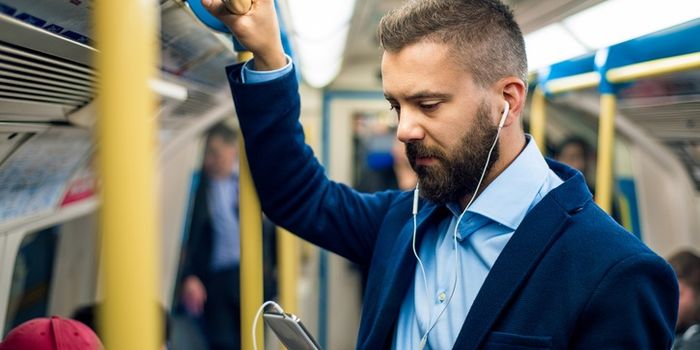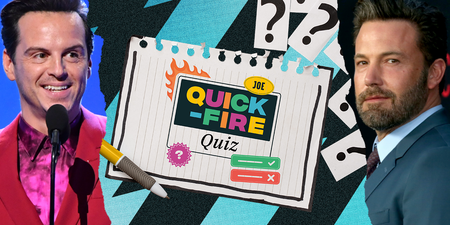It’s really not a good idea.
Just over one in four Irish people (26%) are experiencing symptoms of noise-induced hearing loss due to listening to music on their mobile phone at dangerously high volume levels for twice as long as is deemed safe.
That figure came from research from Hidden Hearing Ireland to mark World Hearing Day on Friday (March 3) and to drive awareness for Hearing Awareness Week, a national health campaign that highlights the issue of hearing loss, with free hearing tests being offered throughout the country next week (March 6-10).
The research, which was conducted amongst over 1,000 adults in Ireland, also found that young Irish people aged 18-24 years listen to music via their mobile phones at ‘dangerous decibel’ levels and do so for two hours and five minutes a day, twice the recommended limit.

Just under one in five, meanwhile, deliberately set the volume to the maximum loudness while worryingly, over four in ten (42%) have experienced ringing and buzzing in their ears and risk causing permanent damage as a result.
Tinnitus (ringing in ears) usually begins at 127 dB and can be an early indicator of hearing loss.
It was also found that just under half of Irish adults (48%) listen to music on their personal device using in-ear earphones, which can potentially cause more hearing harm than headphones. This climbs to 74% among a younger audience of 18-24 year olds.
Hidden Hearing had the following advice to protect your hearing while listening to personal devices:
- If you are listening with headphones to your personal device and someone is talking to you in a normal voice at arm’s length away, you should be able to hear them clearly
- Set a safe listening limit on your devices. Go to settings to override the 100dB (decibel) volume limit setting
- Observe the 60/60 rule – listen at 60% of the maximum volume for no more than 60 minutes a day
- Take regular breaks
Commenting on the findings, Dolores Madden, Audiologist and Marketing Director with Hidden Hearing, said: “If you suffer ringing in the ears or buzzing after listening to loud music, that tells us that the damage is already done. Our research paints a worrying picture for the long-term hearing health of younger people especially.
“An EU study claims by 2020 it may be commonplace for up to 10% of 30 year olds to be wearing a hearing aid and our latest research in Ireland certainly supports that trend. The volume limits are there on our phones and MP3 players to protect our hearing, but it’s frightening to see so many Irish people – particularly young people – ignore or disregard them.”
“Listening to loud music a lot on your mobile phone can cause hearing damage, especially if in-ear buds are used as these offer less protection than headphones,” Madden added.
“With buds, it’s not so much the noise, but the sound pressure that can cause the damage. The bud is inserted in the ear, so the pressure goes straight into the inner ear canal and that can be dangerous if listening for long periods at maximum volume, which a worrying number of Irish people are doing. The World Health Organisation estimates that up to one third of hearing loss in the world’s population is preventable, so boosting awareness is hugely important.”
Find out more about Hearing Awareness Week in Ireland, from March 6-10, here.
LISTEN: You Must Be Jokin’ with Aideen McQueen – Faith healers, Coolock craic and Gigging as Gaeilge





















































